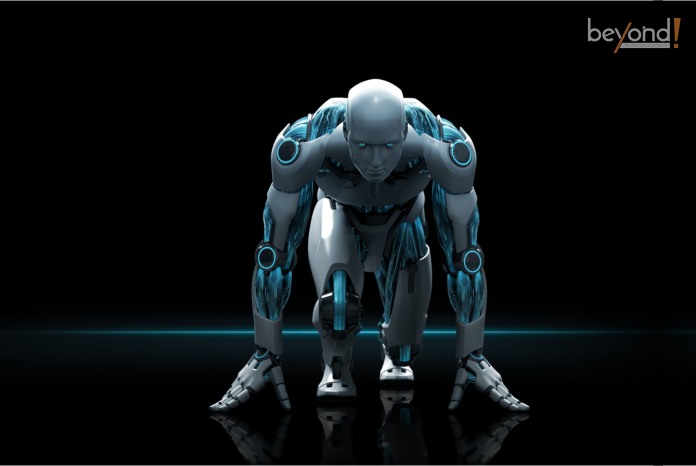How Artificial Intelligence Can Be Used To Design Better Mobile User Experience
The 10 Most Promising Artificial Intelligence Businesses in 2020

Artificial Intelligence, known by its well-known alias AI,
has been around for a long time now- from the 1950s but began garnering
attention in the 1990s with the release of movies depicting this concept. From
‘The Matrix’ to ‘Blade Runner,’ be it Skynet in ‘Terminator 2- Judgement
day’ or Jarvis from ‘Iron Man,’ these films gave us an insight into the
capabilities of an intelligent machine. AI is no longer a mere science fiction
concept, and it bears an infinite potential which, when rightly tapped into, can
do wonders. But how can it enrich mobile user experience (UX)? Before diving
into the details that answer this question, let us take a brief look at what
Artificial Intelligence is, the evolution of AI and its current market value,
and the popular AIs that make a smartphone ‘smart.’
Artificial Intelligence
Artificial Intelligence (AI), in plain words, is the ability
of a machine to think, learn and apply the knowledge gained to make decisions
and carry out tasks on behalf of humans to make life easy. Here’s a simple
example of Artificial Intelligence: if you want to set the alarm for an hour
from now, all you need to do is speak to the AI on your phone, and it would set
the alarm for you, instead of you going through the process of manually setting
it. Via TechiePlus you can learn more
about it.
Evolution of AI: Science Fiction To Reality
A few decades ago, Artificial Intelligence was nothing more
than an idea right out of a sci-fi movie – astonishing, advanced, surreal.
Fast-forward to a few years later from then, you had big companies like Apple,
Google, etc., investing in this concept, bringing it to life. And now, Elon
Musk, Jeff Bezos, and other tech giants are funding projects to tap into the
potential this technology possesses. They believe that the AI built so far is
“narrow” and that it is capable of much more than is already known.
The late, legendary physicist Stephen Hawking believed that AI could be the
most exceptional event in the history of our civilization. Powerful, isn’t
it?
Trendsetter AIs: How They Enhance Mobile UX
However, why is the focus on ‘mobile’ UX, and what role does AI have to play in it? According to Statista, there are 4.18 billion mobile Internet users globally, and these figures are only rising by the day. With more than half the world using smartphones to access sites over the Internet, the necessity for having state-of-the-art mobile UX design has grown multifold because you would rather have a phone that is smart and can simplify tasks for you. To avoid a bland mobile user interaction or user experience, instead of an engaging experience, AIs called virtual assistants, or smart assistants came into existence, and those that exist today are ruling the world, figuratively speaking. Here are some of the trending AIs:
- Siri
– Siri is Apple’s brainchild that played a vital role in making the iPhone
what it is today
- Google
Assistant – Google assistant is to Android what Siri is to iOS, and it
is currently the leading virtual assistant
- Alexa
– Amazon’s equivalent Alexa is widely prevalent on devices such as the
Amazon Echo, Fire TV but the latest app released makes it accessible on
all android smartphones
- Cortana
– Microsoft introduced their own AI system in their desktops and
phones operating on Windows 10
- Bixby – Bixby is another smart assistant that is exclusive to Samsung’s smartphones and TVs only
How To Design An Enriched Mobile UX Using AI
A good user experience constitutes the following :
- Simplicity
of design
- Visually
appealing
- Speed
- Content
clarity(text, images, videos, etc)
- Ease
of use
- Simplifying tasks with minimum user input
By incorporating AI
into designing mobile user experience in the following ways, you can
achieve not only excellent but great UX:
- Supporting
voice commands to run tasks and enhanced searches as having an AI that
can execute jobs for you is most enjoyable if you can talk to it and not
requiring to use your hands much
- Personalization
using AI to make your device feel specially designed for you, predicting
your needs based on all the user data collected – where it records your
routine from your sleep pattern to the number of steps you’ve walked or
tracks your purchase history and searches made, ideally connecting with
you and understanding you better than anybody else.
- Integrating
with IoT which allows you to control your home appliances like your
fans, lights and so on bypassing instructions to your AI such as turning
off the lights and fans when you leave the room or adjusting your AC to
your body temperature
- Realtime
translation where your Al can perform the interpretation of texts and
content for you without requiring external apps or even the Internet
- Security
features that let you unlock your mobile phone and your apps via your
fingerprint or, even better, using the face lock that’s empowered by AI
- Quick access that requires you to feed inputs into your mobile device to assist the AI in carrying out an activity, for example, with just a tap or two your photos are segregated and organized into folders based on people (facial recognition)
In a few years, Artificial Intelligence is going to transfigure mobile user experience remarkably if not revolutionize the way we interact with our mobile phones, thus making our smartphones smarter.














